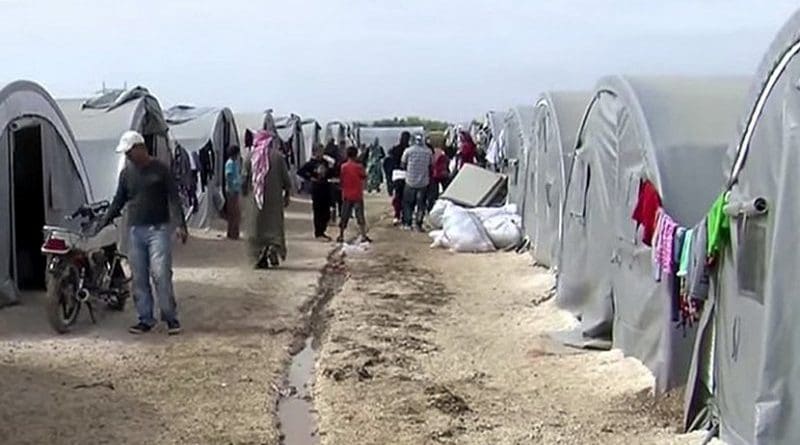Refugees On Syrian-Turkish Border Vulnerable To Radicalization – OpEd
By Arab News
By Emily Przyborowski*
Turkey’s closed border with Syria may be contributing to terrorism. Ankara shutting its border with Syria to stem the flow of refugees to, in part, prevent terrorists from entering the country is shortsighted and ignores the larger long-term threat of refugees at the border becoming radicalized.
As the Assad regime continues pushing into Idlib, masses of refugees are fleeing to the Turkish border, even though it has been closed since the completion of a border wall in 2017. According to a UN report, the violence in Idlib has displaced at least 900,000 people since Dec. 1. On Feb. 28, Turkey began allowing refugees, including some of its estimated 3.6 million Syrian refugees, to cross its borders into Europe. However, Turkey has little intention of accepting additional refugees from Idlib and has prioritized resettling them in northern Syria. As the Assad campaign continues, refugees’ attempts to cross the border have increased.
Turkey has responded to the increased attempts to cross the border by placing watchtowers and barbed wire along the 2017 border wall. Turkey’s military stationed at the border has also been known to open fire on Syrians attempting to scale the wall. Refugees in northern Syria fear that, when the Assad regime’s campaign reaches the border, they will have no place to flee. In large part, Turkey is preventing Syrian refugees from crossing the border because of the risk that terrorists will enter under the guise of being refugees, as well as the financial weight Turkey bears from a large refugee population.
Refugees are uniquely vulnerable to radicalization and, by closing its border, Turkey is risking a swell in terrorists right outside its door. Many of the refugees on the Turkish border are living in overcrowded camps and makeshift shelters. Approximately 170,000 of those refugees are living out in the open without protection from the unforgiving winter conditions. Syrian refugees are subject to high levels of hunger, poverty, local crime, and freezing conditions, which are all major potential contributors to radicalization.
Generally, the dire conditions inside refugee camps can cause them to become hotbeds for extremist ideologies and recruitment grounds for terrorist organizations. On the Turkish border, terrorist recruiters can infiltrate the overcrowded camps largely undetected and gain access to a high concentration of disenfranchised and vulnerable Syrians.
Terrorist organizations take advantage of the vulnerability of Syrian refugees for recruitment and mobilization purposes because these refugees feel abandoned by their own countries, rejected by Turkey, and forgotten by the international community. In many cases, refugees may feel as though joining a radical organization is their best option because of the financial incentives and guarantee of security.
Many terrorist organizations, including Daesh, have a history of capitalizing on the desperation of refugees by offering financial incentives such as salaries to join them. The future of the Syrian refugees is unsure, making them susceptible to joining an organization that offers them financial security and support. Aid agencies are struggling to deal with the mass exodus of refugees from Idlib; food and supplies are scarce, and terrorist organizations may be offering refugees much-needed shelter, food and other support. Prior to its loss of territory, Daesh targeted desperate Syrians by recruiting in refugee camps, on migration routes to Europe, and within the diaspora.
The situation is made even more critical as many members of Daesh are once again free in Syria. According to reports, Daesh members are being released from prisons monitored by the Syrian Democratic Forces, as family members can pay to have them freed. Daesh supporters have also organized prison breaks and, as of October 2019, more than 100 Daesh detainees had escaped from prisons, with their whereabouts unknown. Daesh may now be targeting refugees on the border in order to bolster recruitment and stage a resurgence.
Turkey may not realize that, by preventing a new influx of Syrian refugees in order to stop a few terrorists from entering the country, it risks a growing presence of extremists on its border, which could be a much greater threat.
• Emily Przyborowski is the Middle East Director at Askari Associates and a non-resident fellow with the Turkish Heritage Organization. Twitter: @EmilyMPrzy

